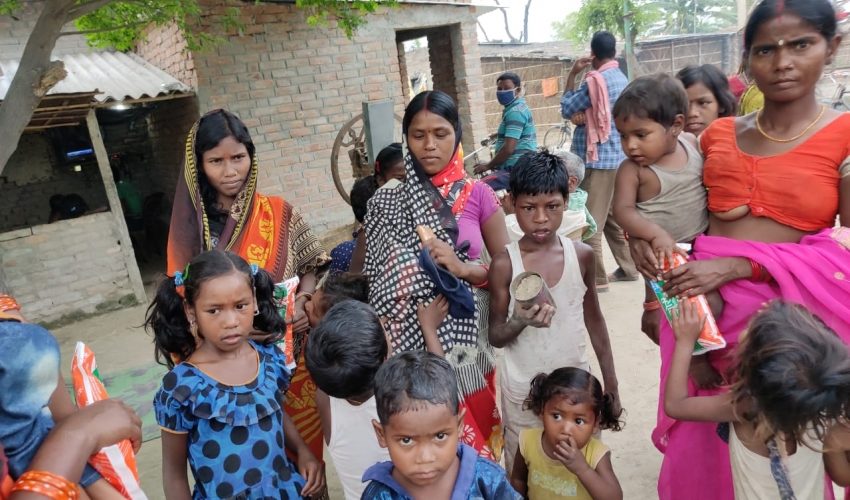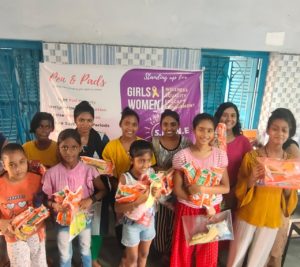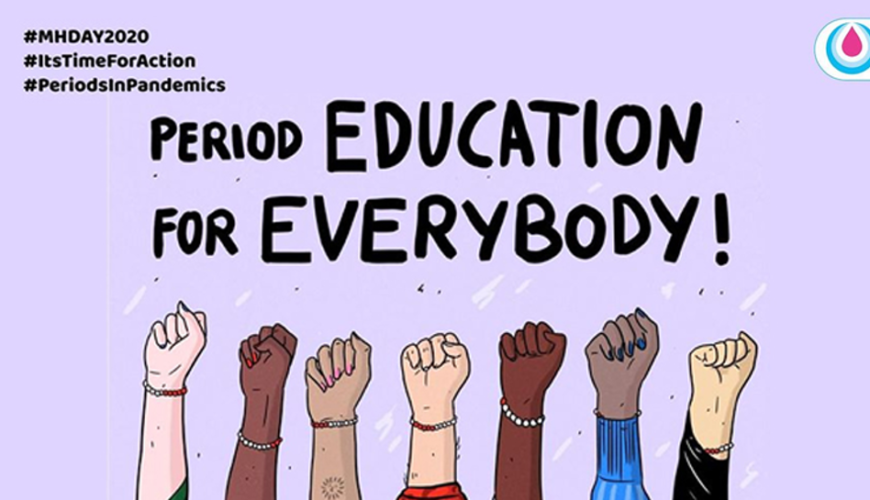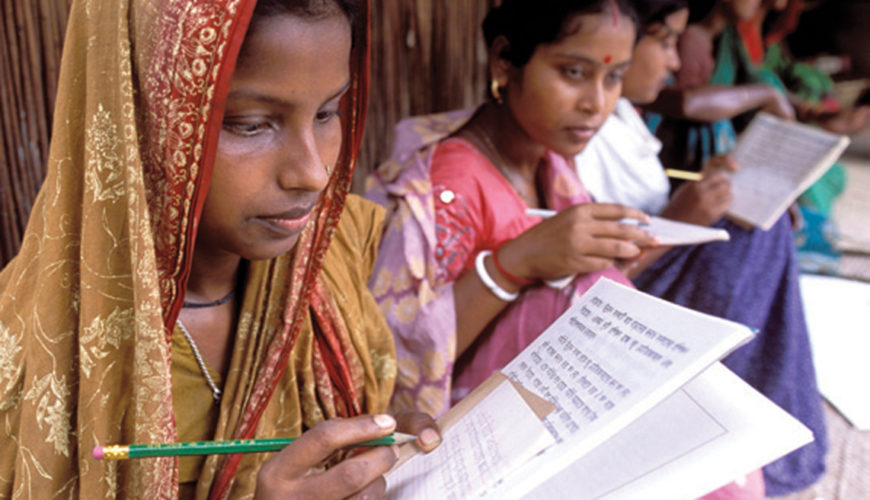
S
THE ISSUE
Period poverty is a lack of affordability and access to menstrual products, education, hygiene facilities, and waste management. It affects an estimated 500 million people worldwide. The economic, social, and environmental impacts of period poverty are huge, with those affected lacking equal education and/or employment opportunities
Gender inequality, discriminatory social norms, cultural taboos, poverty, and lack of basic services often cause girls’ and women’s menstrual health and hygiene needs to go unmet, causing physical, mental, and emotional challenges.
A study found over 60% of rural women use makeshift sanitary pads out of unhygienic materials such as rags, husk, ash and leaves because they are unable to afford sanitary pads. This could lead to severe health conditions such as RTI (Reproductive Tract Infection), Pelvic, Urinary, and Yeast infections, Hepatitis B infection, and increases risks of cervical cancer
As menstruation is a private affair, it is easily neglected as a pressing social & public issue. WHO and UNICEF have established that Menstrual Health & Hygiene needs are a matter of woman rights, and part of one’s basic needs such as food, water, and shelter.
Key Stats
-
-
-
- In US, 25 million women live in poverty, but food stamps and insurance do not cover period products.
- 1 in 5 teens in the US have struggled to afford period products or was not able to purchase them at all.
- 65% of the 16.9 million low-income women in the US could not afford menstrual products in the past year, with half needing to choose between menstrual products and food.
- 76% think we are taught more about the biology of the frogs than the biology of the human female body in school.
- 23 million girls drop out or miss school annually in India due to period poverty.
-
-
OUR RESPONSE
Our support for menstrual health and hygiene is aimed at improving outcomes on education, health, and gender equality for girls and women. In collaboration with our partner Kishoree Foundation, we are implementing the following programs targeting disadvantaged and marginalized women in rural areas.
Dignity Pack Donation Program
Cost: $500/program
Donate 4 to 6 months’ supplies of menstrual hygiene products for up to 300 children per program. The Dignity Pack includes required sanitary pads, underwear, towels, gels, disposable bags, and soaps. Each program includes a 4-hour awareness session, nutritious food, a basic wellness check, and wellness medications.
Scheduled Donation Programs
May 28th & June 4th, 2022: Sonagachi Redlight District, Kolkata, India
Kolkata is home to India’s largest prostitution district. Most sex workers are victims of abuse and sex trafficking, and their children are collateral victims. They are mostly abandoned, unloved, uneducated, and malnourished. There is an alarming need to help educate them on menstrual hygiene and provide hygiene products. It aims to aid with basic awareness and nourishment to prevent young girls from falling victim to the sex trade.
July 2nd, 2022: Bihar, India
Bihar is one of the poor states in India with 51% living below the poverty line. Only 2.7% of rural women graduate and about 3.9% of rural women are employed. An estimated 42% of menstruating girls drop out of school and/or are forced into child marriage.
Sponsor-A-Child Program
Cost: $20/month for a year
Donors can commit to sponsoring the menstrual hygiene needs of one child for a specified period of time, by pledging $20 a month. Your $20 can help a child in rural India meet her menstrual hygiene needs, along with nutritious snacks and supplements.
Do something AWESOME! Stand with us in solidarity to end Period Poverty!
Source: BMC Women’s HealthTrusted Source, State of Period, Always
Image Credit: https://www.joghr.org/



